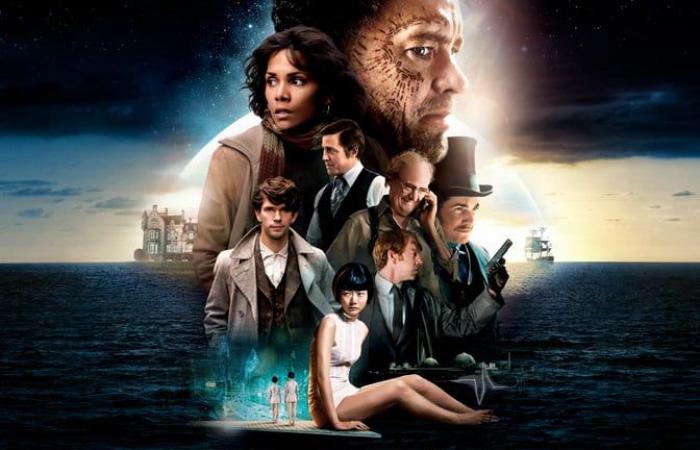
News culture After The Matrix, this sci-fi film with its striking visuals was a terrible failure at the cinema: it deserved much better
Published on 12/28/2024 at 07:15
Share :
The minds behind the Matrix trilogy embarked some time later on an ambitious cinematic fresco which unfortunately did not meet its audience in theaters. This science fiction film cost its producers tens of millions of dollars despite shocking visuals and crazy narrative ambition.
The resounding failure of the Wachowski sisters in the cinema
Released in 2012, “Cloud Atlas” is an ambitious cinematographic work co-directed by Lana and Lilly Wachowski (the “Matrix” trilogy) as well as Tom Tykwer (“Run, Lola, Run”). The film is an adaptation of the eponymous novel by David Mitchell, renowned for its narrative complexity and multiple temporalities. The development of the project was marked by financial and logistical challenges, requiring a substantial budget estimated between $100 and $146.7 million. Despite this prestigious cast and audacious production, “Cloud Atlas” did not meet with the expected success at the box office with worldwide revenues of around $130 million. This commercial failure had notable repercussions on the Wachowskis’ careers, temporarily dampening their creative momentum and causing them to reconsider their future projects.
The cast brings together renowned actors such as Tom Hanks (“Forrest Gump”), Halle Berry (“X-Men”), Jim Broadbent (“Iris”), Hugo Weaving (“Lord of the Rings”), Jim Sturgess ( “Across the Universe”) and Ben Whishaw (“Perfume”), each playing multiple roles across different eras, illustrating the theme of reincarnation and the interconnectedness of souls. “Cloud Atlas” weaves a narrative mosaic spanning five centuries and tells the stories of various characters through time. The story begins in 1849 with a lawyer protecting a runaway slave during a trip to the Pacific Islands. It continues with a destitute composer in pre-war Britain, struggling to complete his masterful work while being caught up in his past. Then in 2144, a genetically modified worker experiences the beginnings of a forbidden human consciousness. Thus, souls are born and reborn, renewing their links through time, illustrating the interconnection of human lives and actions.
“An adventure in the world of storytelling”
Critically, “Cloud Atlas” created a divide between the pros and the antis. On Rotten Tomatoes, the film has an approval rating of 66%. The consensus around this cinematic work evokes wild ambition and striking visuals. Some critics praised its narrative audacity, while others pointed out muddled execution. The Spectator described the film as “a cold and distant and rather dull experience, during which we feel nothing for any of the characters.” He continues: “That’s three hours without actually reaching the place where he should have arrived.” The Irish Times notes that the film “is no Matrix”, but that “it’s certainly worth a watch even if you find yourself throwing popcorn at the screen from time to time.”
The Guardian criticizes, saying that “these audacious ambitions come to nothing” to the point of “confusing the cosmos with the costume department and ending up lost in a world of wigs and bonnets.” The Financial Times appreciates these “three hours to solve the problems of providence, history, human existence and the enigmas of space/time.” Empire Magazine goes in this direction by perceiving the film as “an adventure in the world of storytelling: magical, captivating and exciting as well as confusing, pompous and crazy. In other words, in the clouds.These reviews reflect the film’s mixed reception, oscillating between admiration for its ambition and skepticism about its execution.





